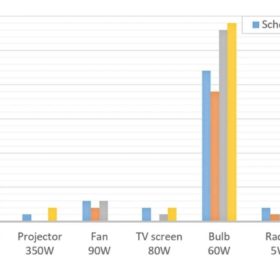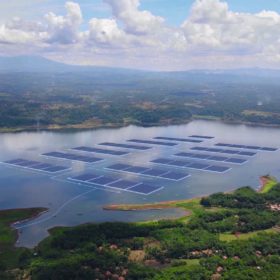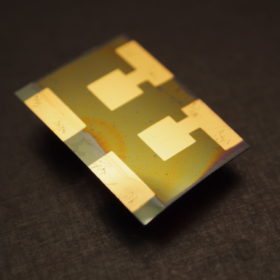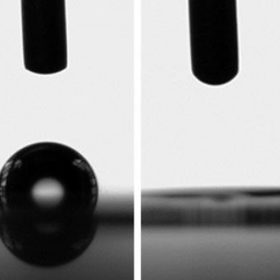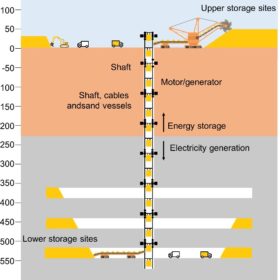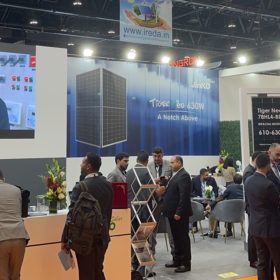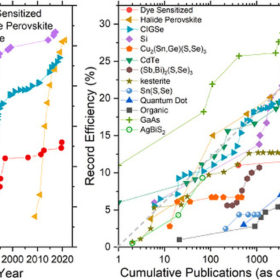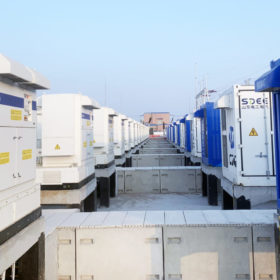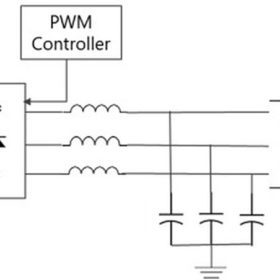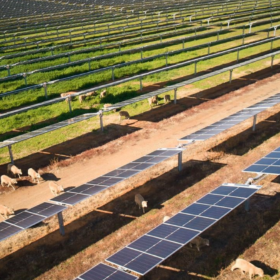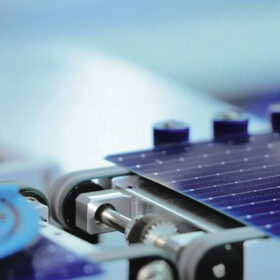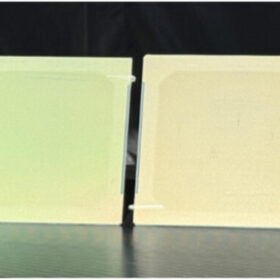Second-life batteries might beat new ones on solar LCOE in remote locations
UK scientists have discovered that second-life batteries could provide a lower levelised cost of electricity (LCOE) than conventional batteries in school buildings equipped with PV in East African schools. They said the cheapest system configuration uses either 7.5 kW or 10 kW of solar with 20 kWh of storage.
Indonesian utility kicks off tender for 100 MW floating solar plant
PT PLN Nusantara Power has launched a tender for a floating PV project that will likely be built at a dam on the island of Java, Indonesia.
Perovskite PV tipped to become competitive in rooftop segment
Scientists from Australia are among an international team of researchers that predict lightweight, high-performance perovskite solar modules could soon become competitive with crystalline PV modules in the residential segment, as such products will likely have lower manufacturing and balance-of-system costs in the future.
Scientists unveil dirt-repellent coating for solar panels
Researchers from Germany’s Fraunhofer FEP have unveiled a dirt-repellent coating for solar panels. The material is reportedly able to acquire superhydrophilic properties at night and wash away accumulated dirt with the aid of beads of moisture.
Storing renewables via regenerative braking in underground mines
Scientists in Austria have developed a long-term energy storage system that uses regenerative braking to adjust the descent speed of sand in mine shafts and generate electricity.
Key takeaways from Abu Dhabi’s World Future Energy Summit
The World Future Energy Summit showed that Middle Eastern solar markets are still driven by utility-scale PV, although the C&I sector shows signs of growth. Saudi Arabia, Egypt and the United Arab Emirates are the most promising markets for big solar projects, with huge pipelines under development, while Lebanon and Yemen show promise due to chronic energy shortages.
Video: ISC Konstanz director predicts 50% global market share for IBC solar panels by 2030
Radovan Kopecek, the co-founder and director of Germany’s ISC Konstanz, says interdigitated back contact (IBC) tech could account for half of the global market for solar modules by 2030. He says IBC will start to dominate once TopCON and HJT get stuck at certain efficiency limits, and he believes TOPCon will be the first victim.
Solar cell efficiency growth correlated with R&D volumes
New research highlights the crucial role of R&D in improving solar cell efficiency. The researchers discovered that it is theoretically possible to measure the promise of new solar cell technologies at any stage of development.
Giant battery goes online in China
Sineng Electric has switched on a 400 MW/800 MWh storage facility in China’s Shandong province. The project features the company’s 3.15 MW turnkey battery stations.
Lowering grid costs with voltage support from PV inverters at night
US researchers have proposed the use of solar inverters in utility-scale solar assets to replace expensive voltage compensators, in order to provide voltage support at night. They said reactive power from PV inverters could be significantly cheaper and suggested the introduction of incentives to convince PV plant owners.

